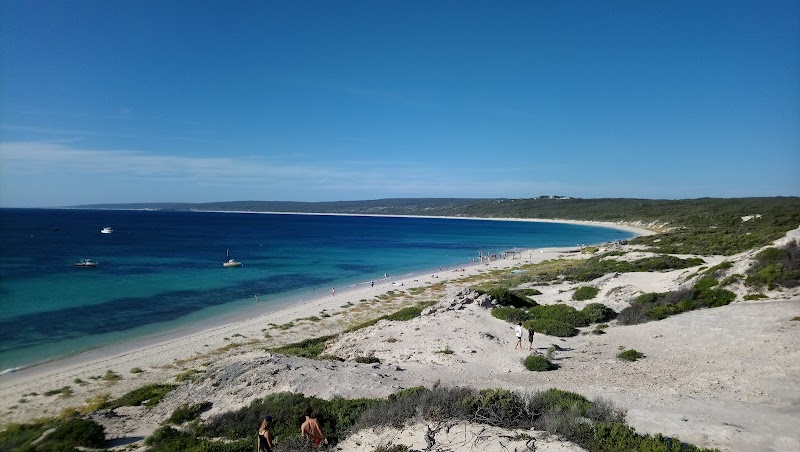
Discover Donnelly River Village's Local Community Markets: A Practical Guide
Experience the fresh, authentic vibe of Donnelly River Village’s local community markets. With handcrafted goods, seasonal produce, and a rich connection to the area’s heritage, these markets offer a practical and engaging stop for anyone exploring Western Australia's South West.
Arrive Early for Best Selection
Markets can get busy by late morning, so plan to arrive when they open to access the freshest produce and avoid parking difficulties.
Wear Comfortable Footwear
Stall areas include gravel paths and uneven surfaces typical of a historic village setting—good grip shoes will keep you steady.
Bring Reusable Bags
Vendors often don’t provide plastic bags, so carry your own for ease of transport while supporting environmental care.
Stay Hydrated
Although the market has some food stalls, carrying water helps as you walk between open-air areas and the nearby trails before or after.
Discover Donnelly River Village's Local Community Markets: A Practical Guide
Donnelly River Village, tucked in the South West region of Western Australia, offers a unique taste of community through its local markets. These markets, held regularly, bring together artisans, growers, and visitors in a vibrant setting that blends history with fresh local offerings. Approaching the main hall where vendors gather, the air carries the scent of freshly baked goods mingled with earthy eucalyptus and the subtle tang of hand-crafted soap.
The market layout encourages exploration at a steady pace. Stalls feature seasonal produce, including plump avocados and vibrant mandarins, mixing with artisan cheeses, homemade preserves, and handcrafted wooden toys that invite curiosity. The village’s timber and stone heritage buildings frame the scene, creating a practical, comfortable flow for visitors moving from one stall to the next.
For those planning a day trip, the markets open mid-morning and typically run until mid-afternoon. This timing provides a relaxed rhythm, allowing visitors to arrive after a morning hike on one of the nearby trails, refreshed and ready to engage. Parking is available but limited; arriving early is advised to avoid congestion during peak weekends.
While strolling through, keep an eye out for local artists demonstrating pottery or woodwork—they bring a dynamic energy to the market experience and offer rare insight into the crafts that thrive in the region’s mix of forest and farmland. Don’t hesitate to ask questions; vendors are known for their friendly, informative approach and ready to share tips on using produce or stories about the village’s history.
Safety and comfort are easy to maintain with straightforward preparation. The village’s mild climate means layered clothing works best, and a hat paired with sunscreen ensures you remain protected during outdoor segments. Walking shoes with good grip will help navigate the uneven path surfaces around the open-air stalls and the adjacent forest trails for those who want to extend their visit.
Whether you’re after fresh, local ingredients for a picnic or a unique souvenir from the South West, Donnelly River Village’s community markets provide more than just shopping. They offer an encounter with a vibrant local lifestyle where nature, history, and craft converge. Plan your visit around market days to experience this hub of local culture firsthand.
Nearby Trips
All Adventures
Boat Charters
Water Activities
Adventures near Donnelly River Village, Western Australia
Discover the unique and memorable adventures that make Donnelly River Village, Western Australia special.
Frequently Asked Questions
When are the Donnelly River Village community markets held?
Markets usually operate on weekends and select public holidays, opening around 9:00 AM and closing by mid-afternoon. Checking local listings before your trip is advisable as dates can vary seasonally.
Are the markets family-friendly?
Yes, the markets offer a relaxed environment where children can enjoy fresh air and engage with local crafts. Some vendors provide interactive demonstrations suitable for all ages.
Can I find vegetarian or vegan options at the markets?
Many stalls offer fresh fruits, vegetables, preserves, baked goods, and plant-based products. While meat-based items are available, vegetarians and vegans will find ample choices.
Is parking available nearby?
Parking exists but is limited due to the village’s size and historic layout. Arriving early ensures easier parking and a less crowded experience.
Are pets allowed at the markets?
Pets on leashes are generally permitted in outdoor areas of the village. It’s best to confirm with market organizers before your visit, especially if planning to bring pets onto market grounds.
What local souvenirs are unique to this market?
Look for handcrafted wooden toys, specialty preserves made from local fruit, and artisan soaps scented with native botanicals—items that reflect Donnelly River’s forest heritage.
Recommended Gear
Comfortable walking shoes
Stable footwear with good grip helps you navigate gravel and uneven dirt paths around market stalls and the village.
Reusable shopping bags
Bring your own bags to carry purchases sustainably and conveniently through the market.
Hat and sunscreen
Sun protection is critical during warmer months when shade is limited between stalls and village buildings.
Light rain jacket
Weather can turn quickly in spring and winter; a waterproof layer will keep you dry and comfortable.
Local Insights
Hidden Gems
- "Explore the old timber mill ruins just beyond the market area for a glimpse of the village’s working past."
- "Nearby Mill Brook offers a quiet picnic spot shaded by towering karri trees."
Wildlife
- "Watch for black cockatoos and rare possums active around dawn and dusk."
- "Seasonal appearances of native orchids add subtle color to forest edges."
History
"Donnelly River Village was initially a timber milling town, now preserved as a heritage site that supports sustainable tourism and local craft industries."
